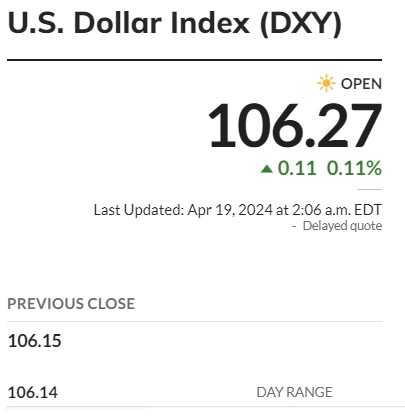The US dollar Bloomberg index gained more than 4% this year and is among the top-performing assets of 2024. The DXY index, which measures the strength of the USD climbed to 106.80 this month from a low of 101.20 in early January. The world’s leading currency is growing by leaps and bounds hammering other local currencies coming its way.
Also Read: Currency: Bank of America Explains Why the US Dollar Is Rising


Developing countries launched the de-dollarization initiative last year and are looking to uproot the US dollar as the world’s reserve currency. The de-dollarization initiative is not going as planned as the USD hammered all local currencies this year in 2024.
For the uninitiated, the US dollar outperformed leading currencies like the Pound Sterling, Chinese Yuan, Japanese yen, and Indian Rupee in the foreign exchange market. All the leading local currencies fell to new lows as the USD strengthened in the global currency markets.
Also Read: US Dollar Sell-off Incoming? Currency Holders Reduce Positions in USD
Ultimately, now that local currencies are down, other countries have no other option but to trade in the US dollar. “If other countries can’t match the growth and inflation of the US, there’s just no other option than to buy the dollar,” said Ales Koutny, Head of International Rates at Vanguard to Bloomberg.
“What was a very tactical trade for us before has become much more of a long-term structural view regarding sustained dollar and US economic strength,” he said.
Also Read: Copper Is the New Gold: Commodity Investors Flock to It for Profits
US Dollar Nips The De-Dollarization Agenda in the Bud


A handful of developing countries had ganged up against the USD to challenge its status as the world’s reserve currency. Market experts were sure that the US dollar could be brought down this time as the de-dollarization agenda remained strong. However, the USD turned bullish this year making local currencies bearish in the currency markets.
“At the beginning of the year I was more of a dollar bear, but that’s no longer the case,” said Rajeev De Mello, Global Macro Portfolio Manager at Gama Asset Management SA.





